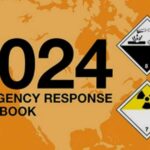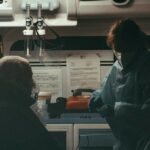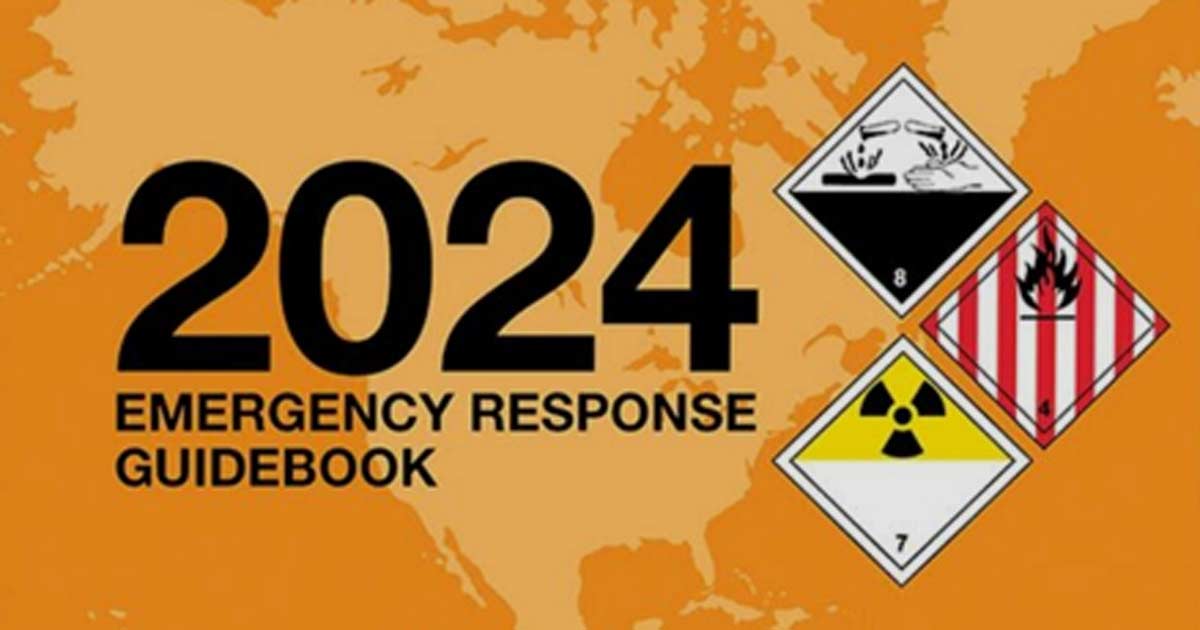Originally published on NEWS
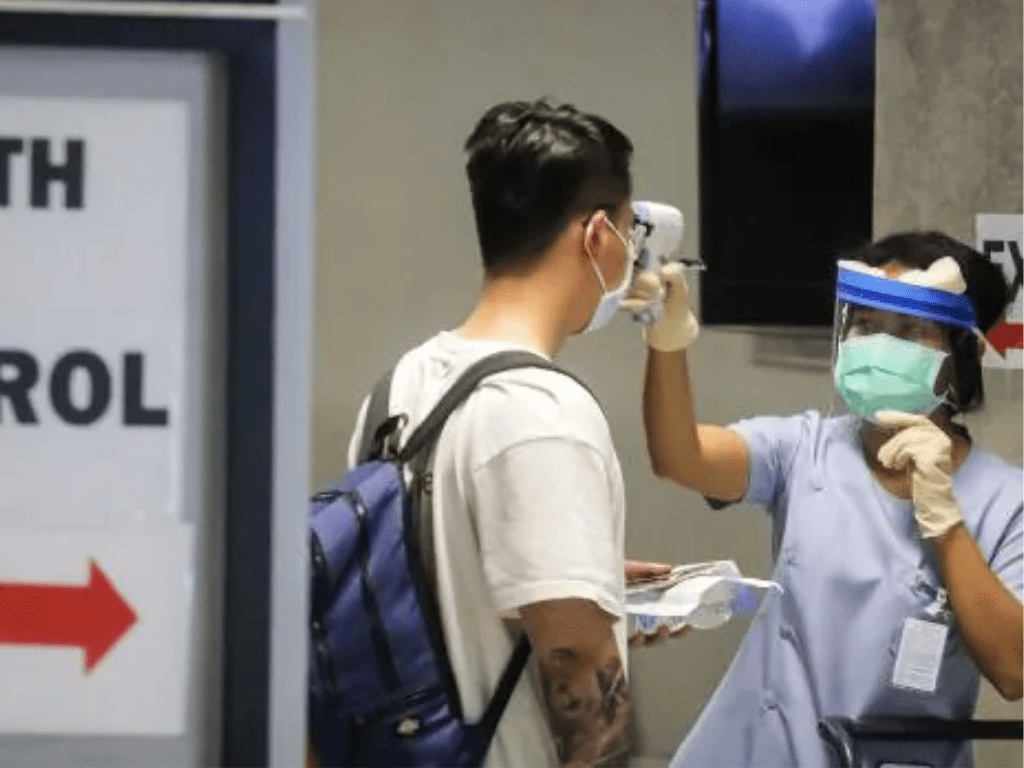
The concept of flying feels about as distant as your dream destination. And when air travel does start again, the airport will look very different.
As airlines around the world begin to resume flights, or at least discuss ways they’ll be doing so post-pandemic, plane travel will be a very different experience once passengers return.
In fact, it’s highly likely that many of our favourite quirks on board – from magazines to dining will have a complete overhaul as more and more of us start flying once again.
COVID-19 has up-ended the world of travel, bringing airlines especially to a global standstill.
But as cases in some parts of the world begin to lower, and the concept of moving around domestically opens up to Australians – the new travel norm will never be the same.
HOW AIRPORTS WILL CHANGE
Some experts predict the most obvious change to the way we fly will be more ‘touchless travel’. This means that from arriving to an airport, or checking-in to a hotel, there will be a significant decrease in touching of surfaces and the exchange of documents from one person to another.
Biometrics is likely to become a widely accepted solution for identity verification, with physical fingerprint and hand scanners to be phased out of airports.
Iris and face recognition will instead come in to play more so around the world, as well as gesture controls and touchless document scanning already being tested to reduce contact.
Many airports around the world have already introduced new measures for passengers including social distancing, hand sanitiser dispensers throughout terminals and for some locations – like in Hong Kong – a full body disinfectant device.
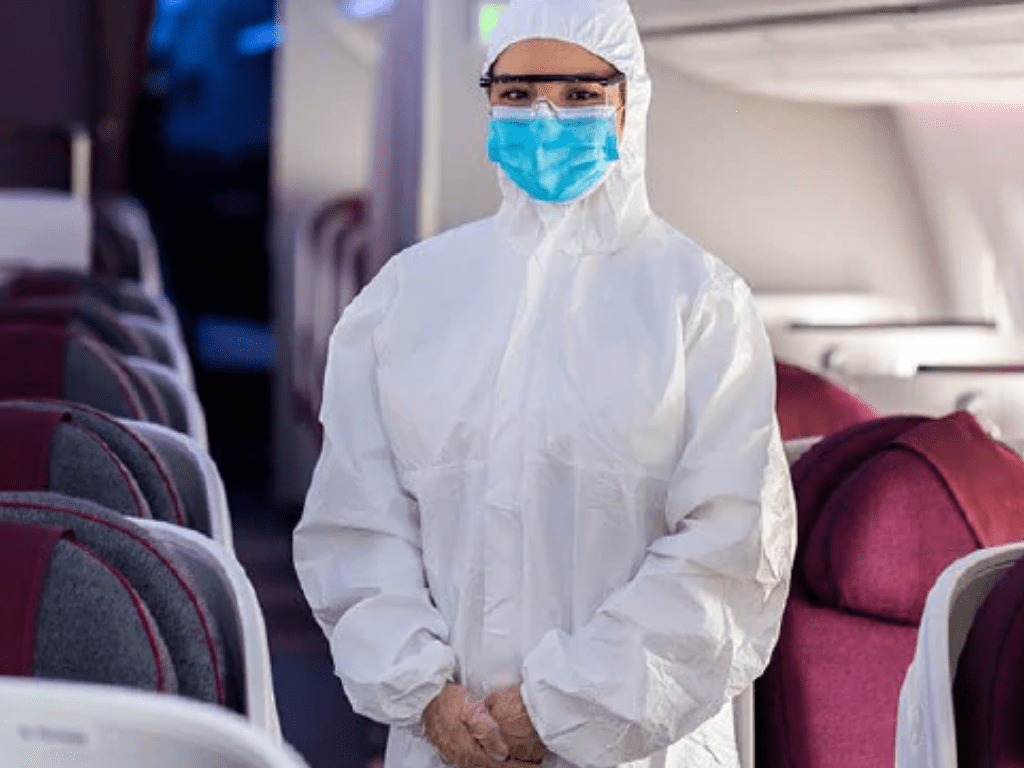
In addition, the airport has also introduced a trial of autonomous cleaning robots that zap microbes with ultraviolet light.
The cube, which looks like an airport body scanner, can sanitise the whole occupant in just 40 seconds by spraying a light chemical that kills bacteria and viruses on skin and clothing.
London’s Heathrow Airport is trialling temperature checks, with tripod mounted cameras used on passengers going through immigration.
The screening, which has been trialled in Italy, takes just seconds using infra-red sensors. Anyone found with a high temperature may be sent to quarantine but this hasn’t been confirmed.
But these changes, while hoping to keep passengers safe, is likely to create much longer wait times at airports around the world.
James Thornton, chief executive of Intrepid travel group, says the process of passing through airports is likely to take longer because of stricter checks.
“Just as taking out liquids and devices before going through machines has become the norm, so too will new social distancing guidelines,” he told the BBC, adding: “It’s possible we’ll see the introduction of an immunity passport.”
According to Forbes, we will also have fewer options on how we get to our destination, with many routes that were once non-stop will now require connections, perhaps by a circuitous route. This could mean that layovers in hubs could be longer and unpopular flight times trimmed back.
Those who like a pre-flight champagne while relaxing in a lounge could face a different experience altogether. While Qantas lounges remain closed, with an opening date yet to be announced, some experts believe certain experiences – like spa services, massages and facials could be axed. Buffets may also be closed and food and beverage options reduced.
HOW FLYING WILL CHANGE
European budget airline EasyJet, who announced new routes in the UK and Europe from June 15, will be enforcing new rules on both passengers and crew.
Face masks will be mandatory for everyone, and additional screens will be put up at check-in,
Planes will also be disinfected between journeys and food service will be stopped.
Australian airline Qantas has announced similar measures from June 12, however it will not be making the wearing of masks compulsory on board, and there will be no social-distancing measures in place.
Speaking of the change earlier this month, CEO Alan Joyce defended the airline’s decision to make masks optional and reinstate the middle seat on board claiming there was a nearly negligible risk of getting COVID-19 on a plane.
“Because the cabin’s pressurised, 99.9 per cent of all viruses, all bacteria, are filtered through medical-grade filters, they are usually in operating theatres and the air is extracted every five minutes from the cabin,” he said. “The air circulates from top to bottom.”
Mr Joyce said that because passengers face the same direction with “a barrier of a seat in front of them” there is “a very low risk of transmission of COVID-19”.
The decision to ban the middle sea has conflicted some airlines. United and JetBlue have committed to leaving them empty, while Ryanair echoed Mr Joyce – saying the decision is “idiotic” and financially unviable.
The International Air Transport Association (IATA) are also against middle seat-blocking, according to their statement, and advise face masks as a better precaution to take.
But while there’s some contention around personal contact inside the cabins while flying, one airline isn’t taking any chances with the virus.
Qatar Airways will have cabin crew wearing hazmat suits while working on board, with a spokesperson for the airline saying the decision was to “provide even greater reassurance to customers in addition to enhanced hygienic measures already in place”.
Korean Air announced they too will be dressing crew in full personal protective equipment (PPE), including gowns, gloves and eye masks.
Emirates, who announced earlier this month they’d be recommencing flights between Australia and the UK, will be giving guests complimentary hygiene kits, containing masks, gloves, antibacterial wipes and hand sanitiser. Meals and blankets will remain on flights, but sterilised.
Other restrictions being considered by airlines include passengers being forced to ask to go to the bathroom, according to Ryanair, and boarding from the back to the front, if travelling with Delta.


